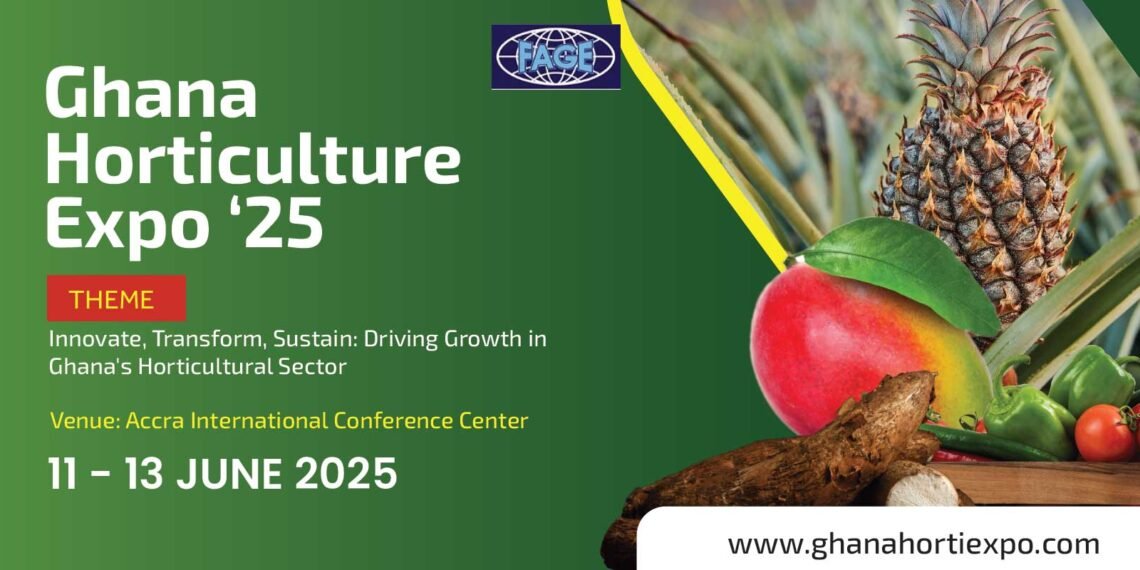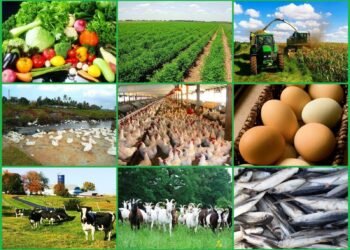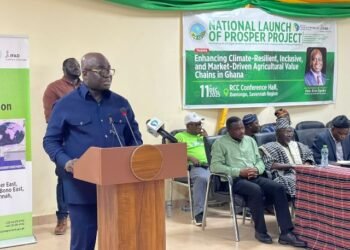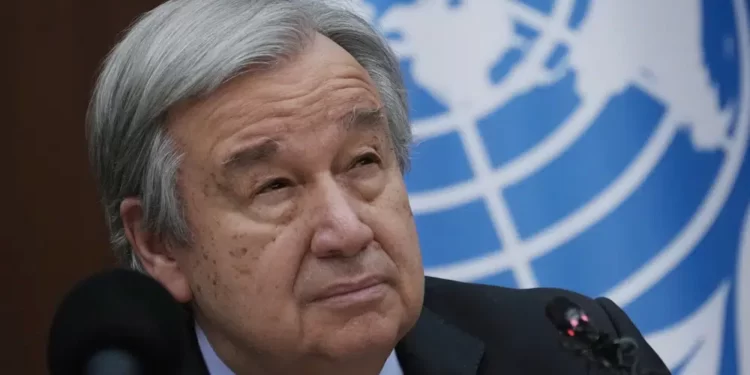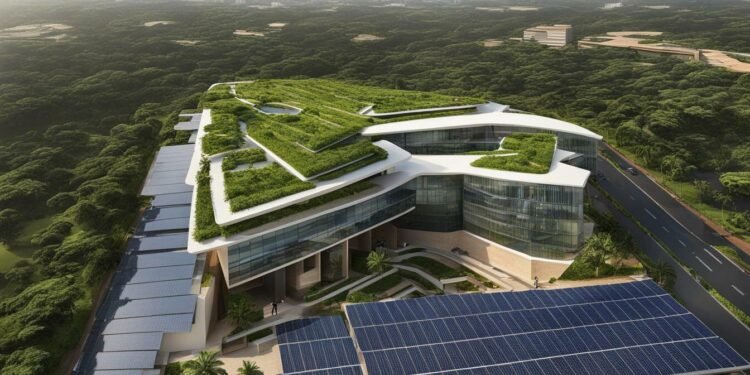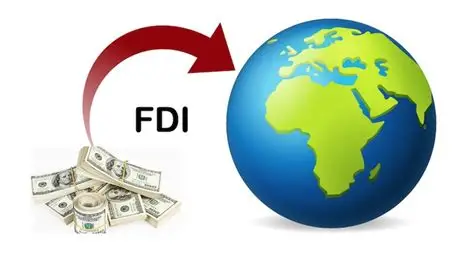The President of the Federation of Associations of Ghanaian Exporters (FAGE), Mr. Davies Narh Korboe, has disclosed that this year’s Horticulture Expo will serve as a strategic platform to empower young people to participate in agricultural export.
Mr. Korboe shared the Federation’s vision to make agriculture attractive to Ghana’s youth, in alignment with the government’s 24-hour economy policy.
Mr. Korboe highlighted the widespread apathy among the youth towards agriculture, attributing it largely to the negative perception that farming is a labor-intensive, outdated profession. “One of the major challenges facing the sector is the negative narrative that paints farming as a poor man’s job,” he explained. He noted that the average age of farmers in Ghana is over 60, an indicator of how unattractive the sector has become for the youth.
According to Mr. Korboe, modern agriculture offers opportunities far beyond traditional farming practices. “But agriculture today is more than just planting and harvesting,” he said. “It is a full value chain—from certification and logistics to marketing and production.” This perspective, he believes, needs to be mainstreamed to reposition agriculture as a dynamic and viable career path for young people.
He noted that factors such as lack of funding, limited mechanisation, and poor access to modern farming technologies have compounded the problem of youth disengagement. However, he maintained that a shift in strategy—through education, innovation, and the integration of technology—could reverse this trend and spark youth-led transformation in the sector.
Reducing Ghana’s Food Import Bill
Mr. Korboe stressed the immense economic potential of agriculture, noting that a well-invested and youth-driven agricultural sector could significantly reduce Ghana’s dependence on food imports. Ghana currently imports approximately $2 billion worth of food annually—a figure that he believes can be drastically reduced if the nation strengthens its agricultural base.
He praised the government’s Feed Ghana policy and expressed optimism that with modern, mechanised approaches, the policy could create food security and sustainable employment for the country’s teeming unemployed youth. “Mechanised farming isn’t only about irrigation—it encompasses every aspect of the agricultural value chain,” he explained.
Horticulture Expo 2025: A Gateway for Youth Engagement
The upcoming Horticulture Expo, scheduled from June 11 to 13, 2025, is expected to play a pivotal role in this transformation. According to Mr. Korboe, the Expo will offer hands-on training, business linkages, and market exposure to aspiring young farmers and entrepreneurs. The event aims to showcase how agriculture, particularly in the horticulture subsector, can be a profitable and sustainable venture.
“Through this Expo, we hope to groom a new generation of agro-exporters who are business-minded and well-versed in international standards,” he stated. The event will also highlight innovations, research findings, and technologies that can help young people scale their agribusiness ventures.
Mr. Korboe called on stakeholders—including government agencies, development partners, private sector players, and civil society—to support the initiative. He emphasized that collective effort is required to reposition agriculture as a growth pillar in Ghana’s 24-hour economy.
“This Expo is not just an event—it is a movement to change the face of Ghanaian agriculture,” he concluded. With the right support, he believes the Expo could become a launchpad for thousands of young Ghanaians to enter the agro-export market and contribute meaningfully to national development.
READ ALSO: President Mahama Moves to Address Devastating Accra Floods

